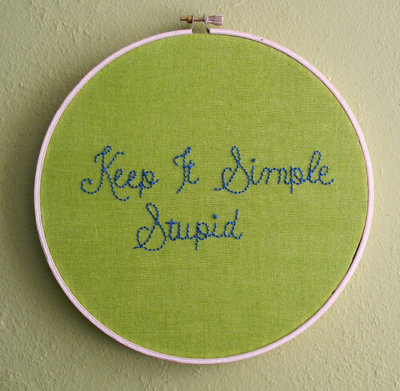Dealing With Difficult People (Yes, Even Your In-Laws!)

photo by Alex Green for Pexels
by Andrea M. Darcy
From cranky relatives to annoying colleagues, we all find ourselves dealing with difficult people now and then.
Tips for dealing with difficult people
How can you better navigate those you don’t get along with?
1. Show up calm. Yes, you can.
Being grounded when dealing with difficult people means the battle is half won. They are way less likely to trigger you.
Resetting your stress levels can take as little as ten-minutes with modern therapy tools. You can even do most of them en route to the party, sitting on a bus or train. Try one of the following to show up calm:
- a quick round of progressive muscle relaxation
- 2-minutes of deep mindful breathing
- mindfulness meditation (easier with a mindfulness app and headphones)
- a bout of furious journalling (rip up the pages after if it feels good).
2. Turn down the drama dial starting now.
Often, when we know we will see someone we don’t like, we start to talk about it to anyone will listen, working ourselves into a frenzy. We then show up ready to fight, and can actually create a conflict we could have otherwise avoided.
Take a moment now to stop talking and get quiet with your thoughts. Then ask yourself, “Am I making assumptions? Is my thinking distorted?” (Read our list of cognitive distortions to be sure).
Look for extreme, black and white thoughts and work to turn them ‘grey’. For example, ‘they hate me’ might become ‘they don’t always seem to like me’. ‘There will be a war’ becomes ‘they might say something mean’.
3. Seek similarities.
With people we don’t like we tend to focus on how we are different from them, which then affects our body language.
A small tweak that can affect the way the other person reacts to you is to find a similarity and repeat it in your mind, whether that is just that you are both wearing the same colour, chose the same drink, or even both look exhausted. You will come across as more open and relaxed and they will respond in kind.
4. Embrace the ‘kiss’.

By: Hey Paul Studios
It’s that old acronym from school days – Keep. It. Simple. Stupid. Where it matters here is in communication.
The clearer and simpler your communication is, the less drama you will have with others.
Remember the following:
- don’t respond until you are sure of what you are being asked
- ask good questions to get the clarity you need
- be sure the other person understands you too, by asking them to clarify what they heard
- use statements that being with ‘I’ instead of the accusatory ‘you’
- if you need time to think, say so. Never be pushed for an answer.
4. Be selfish.
Conflict arises when we approach difficult people so worried what they will think of us and want from us, we come across as defensive.
Give yourself the gift of appropriate selfishness. Change those questions to, what do I want from this situation? What do I think works for me? This leaves you less stressed and more able to make good decisions.
5. Set strong boundaries when dealing with difficult people.
If you have spent your entire life trying to be ‘nice’, setting boundaries can seem a big deal. Surely the other person will hate you, or their will be a huge drama to come of it?
Actually, there won’t.
If you set boundaries in a calm, assured and kind way, then the other person most often just accepts the boundary and goes and finds someone else to accommodate their request. It’s really that simple.
Read our article on “How to be Better at Saying No” to get yourself ready.
6. Play a broken record.
And if boundaries don’t work? If you are dealing with someone who bullies and nags?

By: Michael Coté
Try the ‘broken record technique’. This means clearly saying the same thing (no) again and again, in subtle variations, until it lands. You do not offer any reasons, you don’t get into it, you just say no.
“No, I can’t cover your shift over the holidays, no I am not available, no I’m sorry, no I can’t, as I said I am not available, no.”
7. Exit stage right.
Somewhere along the way many of us seem to have taken on some unwritten rule that if you are at a party, or in a conversation you don’t like, you are stuck.
You are actually perfectly free and able to leave a party early, or to say mid difficult conversation that you ‘have to go deal with something but will be back’. Feel too hard to do? Then claim nature calls and rush off to calm down in the bathroom for five minutes. While honesty is a great policy, a break to re-centre is better then saying things you don’t mean.
8. Stop making shapes of it all.
A triangle, in conflicts, is when another person is unfairly bought into a disagreement, even if that is just verbally. For example, if you are disagreeing with your sister and you say, ‘well I’m sure Mother agrees with me’, you’ve just inflated your power by bringing in a third person.
And if the other person loves a battle, you’ve just thrown them a match. Before you know it they will call your Mother over and have everyone in the room involved. Avoid a war by representing just yourself, and asking them to keep others out of it also.
9. Do a 180 on your perspective.
What if you switched perspective? And if instead of seeing a run-in as something to dread, you prepared in advance and saw it as an opportunity to try out new communication skills?
The funny thing with this is, if the other party thrives off fighting then senses you are for some reason happy to see them, they might not even bother with you.
And if you just always end up in conflict, every year?
If the truth is that you always have a few people you are avoiding or fighting with, then it might, in the end, be you.
Unresolved childhood trauma can mean you are too easily emotionally triggered. Or perhaps you were just raised in a home where you were never allowed to be yourself, leaving you an adult who can’t connect with others in healthy ways.
If this is you, consider a round of counselling or psychotherapy. It will help you sort the past from the present, and teach you tools and tactics for finally creating the life, relationships, and esteem levels you want.
 Andrea M. Darcy is a mental health and wellbeing expert and writer who love writing about relating issues and grew up in a family where she was always dealing with difficult people! She also runs a consultancy helping people find their perfect therapy and therapist. Follow her on Instagram for useful life tips @am_darcy
Andrea M. Darcy is a mental health and wellbeing expert and writer who love writing about relating issues and grew up in a family where she was always dealing with difficult people! She also runs a consultancy helping people find their perfect therapy and therapist. Follow her on Instagram for useful life tips @am_darcy





Updating that last bit.
If you’re going to the function, and the same folks are always picking on you.
chances are it could also just be them.
I had an uncle who was a racist, homophobic, violent man.
You could try to lay low, but if he knew something about you and saw you coming, he would single you out and come after you.
If you’re always in a fight… double check, who’s coming for you?
Different folks? (could be you)
Same person function after function? definitely them.
Don’t let folks who deny your humanity rule it all.
If you cant go to functions because of that person, tell the rest of the fam. “This person’s always out to hurt me, and that’s why I’m not around.”
If, the fam wants you around, they will find a way to sort the details.
If not… find yourself a new chosen fam to hang out with.
Well it’s certainly one perspective! Although living your life constantly on the defense and seeing the world as ‘me against them’ is a sign that there was trauma in the past and you don’t feel the world is a safe place. So our perspective would be, instead of living life constantly paranoid and sure everyone is out to get you, go to therapy. Process your trauma, learn who you are, what your inner resources are. If you raise your self esteem enough you will start to create a life and attract healthy relationships where this sort of scenario doesn’t even happen.
thank you so much i’m so relieved😀
glad to be of help!